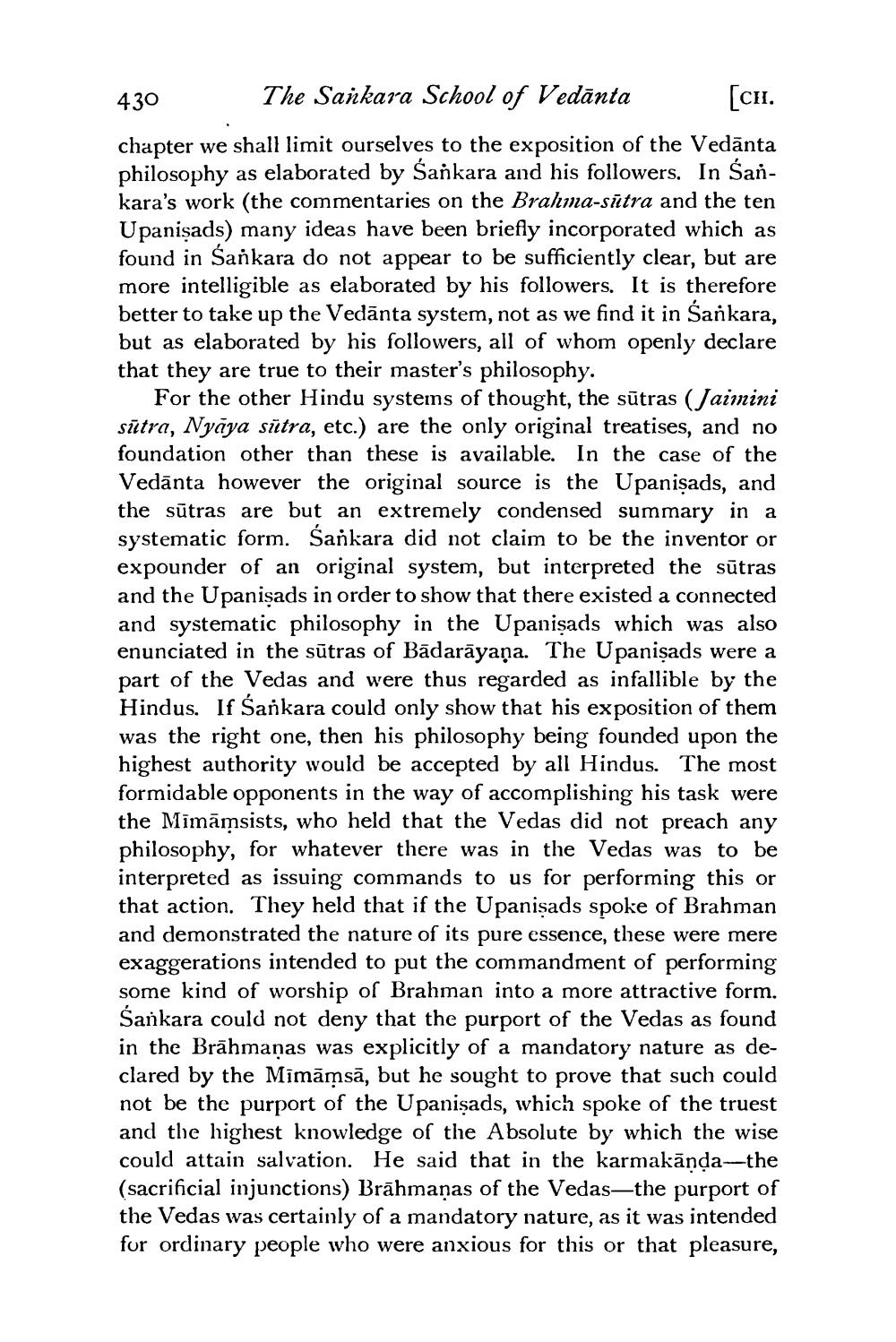________________
430
The Sankara School of Vedānta
[cu.
chapter we shall limit ourselves to the exposition of the Vedānta philosophy as elaborated by Sankara and his followers. In Śankara's work (the commentaries on the Brahma-sūtra and the ten Upanişads) many ideas have been briefly incorporated which as found in Sankara do not appear to be sufficiently clear, but are more intelligible as elaborated by his followers. It is therefore better to take up the Vedānta system, not as we find it in Sankara, but as elaborated by his followers, all of whom openly declare that they are true to their master's philosophy.
For the other Hindu systems of thought, the sūtras (Jaimini sutra, Nyāya sūtra, etc.) are the only original treatises, and no foundation other than these is available. In the case of the Vedānta however the original source is the Upanişads, and the sūtras are but an extremely condensed summary in a systematic form. Sankara did not claim to be the inventor or expounder of an original system, but interpreted the sūtras and the Upanişads in order to show that there existed a connected and systematic philosophy in the Upanisads which was also enunciated in the sūtras of Bādarāyaṇa. The Upanisads were a part of the Vedas and were thus regarded as infallible by the Hindus. If Sankara could only show that his exposition of them was the right one, then his philosophy being founded upon the highest authority would be accepted by all Hindus. The most formidable opponents in the way of accomplishing his task were the Mimāmsists, who held that the Vedas did not preach any philosophy, for whatever there was in the Vedas was to be interpreted as issuing commands to us for performing this or that action. They held that if the Upanisads spoke of Brahman and demonstrated the nature of its pure essence, these were mere exaggerations intended to put the commandment of performing some kind of worship of Brahman into a more attractive form. Sankara could not deny that the purport of the Vedas as found in the Brāhmanas was explicitly of a mandatory nature as declared by the Mimāṁsā, but he sought to prove that such could not be the purport of the Upanişads, which spoke of the truest and the highest knowledge of the Absolute by which the wise could attain salvation. He said that in the karmakānda--the (sacrificial injunctions) Brāhmaṇas of the Vedas—the purport of the Vedas was certainly of a mandatory nature, as it was intended for ordinary people who were anxious for this or that pleasure,




